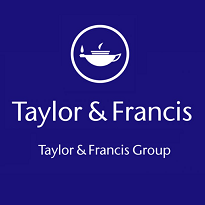| مشخصات مقاله | |
| انتشار | مقاله سال ۲۰۱۷ |
| تعداد صفحات مقاله انگلیسی | ۲۲ صفحه |
| هزینه | دانلود مقاله انگلیسی رایگان میباشد. |
| منتشر شده در | نشریه تیلور و فرانسیس |
| نوع مقاله | ISI |
| عنوان انگلیسی مقاله | Engagement partners participating in auditing standard setting and audit quality |
| ترجمه عنوان مقاله | به کارگیری شرکای مشارکتی در تنظیم استاندارد حسابرسی و کیفیت حسابرسی |
| فرمت مقاله انگلیسی | |
| رشته های مرتبط | حسابداری |
| گرایش های مرتبط | حسابرسی |
| مجله | مجله حسابداری و اقتصاد حوزه اقیانوسیه آسیا – Asia-Pacific Journal of Accounting & Economics |
| دانشگاه | Department of Accounting and Information Systems – Asia University – Taiwan |
| کلمات کلیدی | تنظیم استاندارد حسابرسی؛ ویژگی های شریک؛ ریسک اعتبار؛ مدیریت سود؛ کیفیت حسابرسی |
| کلمات کلیدی انگلیسی | Auditing standard setting; partner-level characteristics; reputation risks; earnings management; audit quality |
| کد محصول | E6544 |
| وضعیت ترجمه مقاله | ترجمه آماده این مقاله موجود نمیباشد. میتوانید از طریق دکمه پایین سفارش دهید. |
| دانلود رایگان مقاله | دانلود رایگان مقاله انگلیسی |
| سفارش ترجمه این مقاله | سفارش ترجمه این مقاله |
| بخشی از متن مقاله: |
| ۱٫ Introduction
Over the past decade, following the trend that a growing number of jurisdictions (e.g. Australia, China, the European Union, Japan, and Taiwan) mandate the signature or identification of the engagement partner in the audit report or other documents (Carcello and Li 2013), archival auditing research has begun to study the impact of partner-level characteristics on audit quality. Such characteristics include tenure (Chen, Lin, and Lin 2008), gender (Ittonen, Vähämaa, and Vähämaa 2013), educational background, Big 41 audit firm experience, rank in the audit firm, political affiliation (Gul, Wu, and Yang 2013), and aggressiveness (Knechel, Vanstraelen, and Zerni 2015). As Francis (2011, 134) pointed out, ‘These archival studies of partner characteristics illustrate the importance of knowing more about the people who do audits and the effect it may have on audit quality.’ Based on a unique setting, we extend this stream of research by investigating whether engagement partners who participate in the auditing standard setting (hereafter, ‘Auditing Standards Committee (ASC) member auditors’ or ‘standard setting auditors’) provide a different level of audit quality, and more importantly, the underlying cause if they do. Given that there is no ready-made theory that exists at present to explain the potentially distinct audit quality delivered by standard setting auditors; therefore, the arguments and empirical results in this study may help us to further explore some drivers that affect audit quality. Specifically, we present three arguments to explain why the ASC member auditors may provide better audit quality2 : (1) inherent expertise for appointment as an ASC member, i.e. the appointment as an ASC member is just the result of superior audit expertise, not the cause why an ASC member auditor can provide better audit quality; (2) knowledge accumulated through standard setting experience; and (3) concerns about impairments to the auditor’s increased reputational capital. We use a sample of listed companies audited by Big 4 audit firms in Taiwan for three reasons. First, an audit report in Taiwan must be signed by two audit partners, and this requirement makes studies based on the characteristics of individual auditors feasible. Second, the national auditing standard setter in Taiwan, the Auditing Standards Committee (ASC), allows its member to be a practicing auditor.3 Third, the legal environment in Taiwan minimizes the auditors’ litigation risks (Liao, Chi, and Chen 2013; Lin and Lin 2013). To sum up, this setting provides us with unique data to explore our research questions. |
